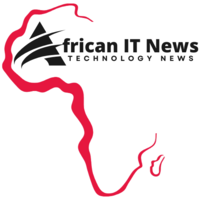Table of Contents
There’s no denying the fact that Africa’s digital health landscape is growing. But with a continent of 54 countries, it can be hard to know where to start when it comes to healthtech (health technology) or digital health in Africa. So, does HealthTech matter in Africa?
HealthTech, or digital health, includes any type of technology that is used to improve the delivery of healthcare services. This can be everything from medical devices and applications (apps) to data analytics tools and telemedicine platforms as well as mobile health apps. HealthTech has the potential to transform healthcare in Africa by increasing access to care, improving the quality of care, and reducing costs.
In recent years, there has been a growing focus on HealthTech in Africa as a way to improve access to healthcare services on the continent. With a population of over 1.4 billion people (as of 22.09.2022), Africa is the world’s second most populous continent. However, it is also home to some of the world’s most deprived countries when it comes to health indicators.
According to the World Health Organization (WHO), life expectancy in Africa is below 60 years, which is years lower than the global average. In addition, WHO data shows that African countries have some of the highest rates of maternal and child mortality in the world.
With such poor health indicators, it’s clear that there is a need for innovation when it comes to healthcare delivery in Africa. This is where HealthTech comes in.
HealthTech has the potential to transform healthcare delivery in Africa by increasing access to quality care, improving efficiency, and reducing costs. In fact, according to a report by Deloitte, digitizing healthcare could save African countries US$63 billion by 2025.
The current state of healthcare in Africa
The current state of healthcare in Africa is abysmal. In many countries, there is only one doctor for every 5,000 people. In others, there are no doctors at all. This shortage is compounded by a lack of infrastructure and resources. Many hospitals do not have running water or electricity. This lack of access to basic medical care results in a high rate of preventable deaths.
Despite these challenges, health care in Africa (healthcare in Africa 2022) is improving. The number of physicians has doubled over the past 20 years. The number of hospitals has tripled. And the number of people with access to modern medical care has quadrupled. Even so, much work remains to be done. One way to further improve health care in Africa is through the use of HealthTech.
HealthTech is defined as the use of technology to improve the delivery of healthcare services. It can encompass a wide range of applications, from telemedicine to data analytics to mobile health apps. HealthTech has the potential to transform healthcare in Africa by increasing access to care, improving the quality of care, and reducing costs.
In recent years, there have been several HealthTech initiatives launched in Africa with promising results. One example is Zipline, a drone delivery service that brings needed blood and vaccines to remote areas across Ghana, in West Africa. Another is mPedigree, a mobile app that helps consumers verify the authenticity of medications. These initiatives demonstrate the potential of HealthTech to make a real impact on the lives of people in Africa.
The potential of HealthTech in Africa
It is estimated that by the end of the year 2030, chronic diseases will account for 70% of all deaths globally, so chronic disease management is a huge global problem. What role can HealthTech play in Africa’s health needs, a continent that at times gets hit by both imported and chronic diseases?
E-health
E-health can be said to be the use of electronic media and technology in health care delivery and services. In Africa, e-health has the potential to make a transformational impact on healthcare delivery by expanding access to quality services, reducing costs, and ensuring greater efficiency.
Some of the key ways in which e-health can improve healthcare in Africa include:
- Greater access to quality healthcare: E-health can help to close the gap in access to quality healthcare by providing remote consultation and diagnosis, as well as e-learning opportunities for medical professionals.
- Cost reduction: E-health solutions can help to reduce the cost of healthcare delivery by automating administrative processes and improving resource utilization.
- Improved efficiency: E-health can help to improve the efficiency of healthcare delivery by facilitating better communication and coordination between different stakeholders, as well as providing real-time data for decision-making.
- Enhanced patient engagement: E-health solutions can help to engage patients more actively in their healthcare, resulting in improved outcomes.
- Greater equity in healthcare: E-health has the potential to provide greater equity in healthcare by expanding access to quality services regardless of geographical location.
M-Health
The use of mobile technologies to improve health outcomes or m-health has the potential to transform healthcare in Africa. A growing body of evidence suggests that m-health interventions can improve health outcomes and increase access to care, especially in resource-poor settings.
M-health interventions are diverse, but common applications include disease surveillance, appointment reminders, remote monitoring of patients, and education on healthy behaviours. M-health has the potential to address many of the challenges faced by healthcare systems in Africa, including weak infrastructure, shortages of trained personnel, and low levels of health literacy.
Despite its promise, m-health remains underutilised in Africa. One reason for this is the lack of evidence on the effectiveness of m-health interventions in African populations. Another reason is the lack of funding for m-health initiatives. With more research on the effectiveness of m-health interventions and more investment in m-health initiatives, African healthcare systems could be transformed.
Telemedicine
The lack of access to quality healthcare is a pressing issue in Africa. According to the World Health Organization, Africa has only about 10 per cent of the world’s health workforce. This means that there are very few doctors, nurses, and other health workers to meet the needs of the continent’s population. In addition, many African countries do not have adequate infrastructure in place to support quality healthcare. For example, less than 40 per cent of households in Sub-Saharan Africa have electricity. This lack of access to quality healthcare and infrastructure is a major barrier to the continent’s development.
One way to overcome this barrier is through the use of Telemedicine. Telemedicine is the use of telecommunications and information technologies to provide medical care from a distance. It can be used to connect patients with doctors and other healthcare professionals in remote areas. Telemedicine can also be used to provide continuing medical education for health workers and to share medical records and other data between facilities.
There are many potential benefits of telemedicine for Africa.
- First, it has the potential to improve access to quality healthcare for rural and remote populations who do not have easy access to clinics or hospitals.
- Second, telemedicine can help reduce the cost of healthcare delivery by reducing travel costs for patients and doctors alike.
- Third, telemedicine can help improve the quality of care by enabling health workers to consult with specialists in other parts of the world.
- Finally, telemedicine can assist with training health workers and sharing best practices between facilities.
While there are many potential benefits of telemedicine, there are also some challenges that need to be addressed before it can be widely adopted in Africa.
- First, there is a lack of awareness about telemedicine among both health workers and the general population.
- Second, there is a lack of investment in telecommunications infrastructure on the continent, which makes it difficult to connect remote areas with specialist care providers. Where these telecommunication infrastructure exist, it’s only enjoyed in the cities and big towns.
- Third, there is a need for more trained health workers who can use telecommunications technologies effectively.
- Lastly, some African countries do not have regulations in place that would allow for the legal and ethical use of telemedicine services.
Despite these challenges, telemedicine has great potential to improve access to quality healthcare for Africans living in remote and rural areas. With increased awareness and investment in telecommunications infrastructure, telemedicine could play a vital role in closing the Continent’s vast healthcare gap.
The challenges of HealthTech in Africa
Access to quality healthcare is a challenge in many parts of Africa. Lack of access to quality healthcare contributes to poor health outcomes and increased mortality rates. In this section, we will explore the challenges of implementing HealthTech in Africa.
1/ Lack of infrastructure
One of the main issues facing HealthTech in Africa is the lack of adequate infrastructure. Most African countries do not have the same level of access to technology as developed countries, which makes it difficult to implement effective HealthTech solutions. In addition, many African countries do not have the financial resources to invest in HealthTech initiatives.
2/ Lack of trained personnel
Another challenge facing HealthTech in Africa is the lack of trained personnel. Many African countries do not have enough trained doctors, nurses, and other medical professionals to meet the needs of their population. This shortage of trained personnel makes it difficult to implement and operate HealthTech solutions.
3/ Cultural beliefs
Another challenge facing HealthTech in Africa is the cultural belief that health is a personal responsibility. In many African cultures, individuals believe that they are responsible for their health and well-being. This belief makes it difficult to promote preventative health measures, such as vaccinations or early detection campaigns.
4/ Lack of skilled personnel
A big challenge facing HealthTech in Africa is the lack of skilled personnel. The skills gap is particularly acute in the area of software development. To meet the ever-growing demand for HealthTech applications, there is a need for more trained developers on the continent. However, this is often difficult to achieve due to the lack of quality education and training opportunities.
5/ Brain drain
Another challenge related to the lack of skilled personnel is the brain drain. Many talented Africans leave the continent in search of better opportunities and higher wages. This brain drain can make it difficult for African countries to retain and attract talent, which further exacerbates the skills gap.
The challenges faced by Health Tech startups in Africa
1/ Lack of funding
One of the main challenges that HealthTech startups face in Africa is a lack of funding. This is due to several factors, including the perceived risk of investing in early-stage startups, the lack of understanding of the HealthTech sector by investors, and the small size of the African HealthTech market compared to other markets such as North America and Europe.
2/ Lack of experienced healthtech executives
Another challenge that HealthTech startups face is a lack of experienced executives and employees. This is because the HealthTech sector is still relatively new in Africa and there is a lack of people with experience in this field. This means that startups often have to resort to hiring expatriates, which can be expensive.
3/ Unavailability of solid regulations
A third challenge that HealthTech startups face is regulation. The regulation of health technology is still in its infancy in most African countries and there are often unclear guidelines on what types of technology can be used, how it can be used, and who can use it. This can make it difficult for startups to navigate the regulatory landscape and get their products approved for use.
4/ Size of the customer base
Finally, a fourth challenge that HealthTech startups face is a lack of customers. This is because many Africans are not aware of the benefits of using health technology, or they cannot afford to purchase these products. This means that startups need to find innovative ways to market their products to African consumers.
The way forward for HealthTech in Africa
Across Africa, people are getting sick and dying from preventable diseases. Inadequate access to quality healthcare is one of the continent’s most pressing development challenges. HealthTech has the potential to help reduce these inequalities by providing innovative solutions to some of the continent’s most pressing health challenges. In this section, we will explore the way forward for HealthTech in Africa.
Public-private partnerships
Public-private partnerships (PPPs) are an important means through which the private sector can contribute to the provision of public goods and services, including in the health sector. PPPs can take several different forms, but all involve some kind of collaboration between the public and private sectors.
In many countries, the health sector is facing significant challenges, including a lack of funding, a shortage of skilled personnel, and an ageing infrastructure. In such circumstances, PPPs can be an effective way to provide much-needed services and infrastructure.
There are several PPPs already operating in the health sector in Africa. For example, in Ghana, a PPP between GE Healthcare and the country’s Ministry of Health has resulted in the installation of new X-ray machines in several hospitals. In Kenya, another PPP has resulted in the construction of a new cancer treatment centre.
Pilot projects such as these are important in demonstrating the potential for PPPs to make a positive impact on health outcomes in Africa. However, it is also important to remember that PPPs are not a silver bullet and that they need to be carefully designed and managed if they are to be successful.
Collaboration
One of the ways forward for HealthTech in Africa is through collaboration.
See, the health landscape in Africa is unique, and the potential for technology to improve healthcare delivery is significant. To realize this potential, key stakeholders need to come together and collaborate.
Many challenges need to be addressed to improve healthcare in Africa, including access to quality care, affordability, and the shortage of skilled health workers. However, with the right partnerships and collaborations in place, it is possible to overcome these challenges and use health technology to improve healthcare delivery in Africa.
One example of a successful collaboration is the partnership between the Rockefeller Foundation and Care message centres which has resulted in the creation of a network of over 800 message centres across Africa. This network allows for the exchange of health information between different organizations and has been used to provide essential health information during emergencies such as disease outbreaks.
Another example is the partnership between Philips and giveDirectly which has resulted in the creation of a system that enables cash transfers to be made via mobile phone. This system is being used to provide financial assistance to families in need and is helping to reduce poverty levels in rural areas.
These are just two examples of how collaboration can help to improve healthcare delivery in Africa. There are many other opportunities for collaboration that could have a significant impact on the continent.
Capacity building
For HealthTech to be successful in Africa, capacity building is essential. This means that skills and knowledge must be built within the African health workforce so that they can effectively use and adopt HealthTech solutions. There are many ways in which capacity building can be achieved, such as training programmes, e-learning platforms, and partnership working.
Conclusion
Africa Health Holdings (AHH) for example is making strides in healthtech. As a renowned provider of cutting-edge healthcare services in Africa, with operations in Kenya, Ghana, and Nigeria, they are managing and transforming emerging healthcare brands that are offering patient-centred treatments at affordable prices across the African continent. This is the future Africa wants for building the future of healthcare in Africa.
We believe the future is bright for HealthTech in Africa to take off because HealthTech in Africa really matters!




